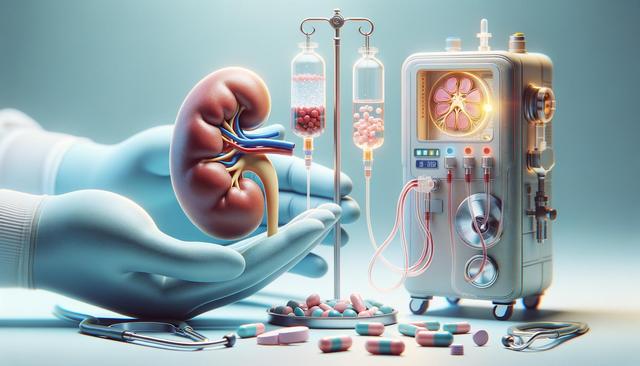Understanding Kidney Failure and Its Impact
Kidney failure, also known as end-stage renal disease (ESRD), occurs when the kidneys can no longer filter waste and excess fluids from the blood. This condition can develop gradually due to chronic kidney disease (CKD) or occur suddenly due to acute kidney injury. The symptoms can include fatigue, swelling in the legs, shortness of breath, and confusion. Treatment becomes essential not only to manage symptoms but also to prevent further complications. While traditional methods such as dialysis or kidney transplants are widely used, individuals are increasingly exploring other options like natural remedies for kidney failure and dialysis alternatives for kidney disease to complement or substitute conventional approaches.
Kidney Transplants and Financial Considerations
A kidney transplant is one of the most effective long-term treatments for kidney failure. It involves surgically placing a healthy kidney from a donor into a patient whose kidneys no longer function properly. However, the financial aspect of this procedure can be a major concern, particularly for those without medical coverage. The cost of kidney transplant without insurance can range significantly, often reaching hundreds of thousands of dollars. This includes pre-surgical evaluations, hospital stays, surgery, post-operative care, and lifelong medications to prevent rejection. While the outcomes of transplants are generally positive, the financial burden leads many to consider alternative or supplementary treatments.
Natural and Holistic Approaches to Kidney Health
Many individuals seek natural remedies for kidney failure as part of a broader effort to manage their health. These approaches often involve dietary adjustments, herbal supplements, and lifestyle changes aimed at supporting kidney function and reducing further damage. Some popular natural remedies include:
- Increasing water intake to support filtration
- Reducing sodium, potassium, and phosphorus in the diet
- Using herbs such as dandelion root, nettle leaf, and ginger for their potential anti-inflammatory properties
- Avoiding high-protein diets that can overburden the kidneys
In the United States, there is a growing interest in holistic kidney failure treatment USA options, which combine conventional medicine with alternative therapies. These may include acupuncture, stress management techniques, and personalized nutrition plans developed with the guidance of a healthcare professional.
Exploring Dialysis Alternatives
While dialysis is a common treatment for ESRD, it is not the only option. Some patients look into dialysis alternatives for kidney disease to avoid the time-consuming and physically demanding nature of dialysis sessions. These alternatives may include:
- Conservative management, which focuses on symptom control without dialysis
- Peritoneal dialysis, offering more flexibility than hemodialysis
- Experimental therapies aimed at regenerating kidney tissue
- Kidney assist devices or wearable artificial kidneys under development
Each of these options comes with its own set of benefits and risks, and their suitability depends on an individual’s overall health, stage of kidney failure, and personal preferences. Consulting with a nephrologist is vital to determine the most appropriate treatment path.
Can Kidney Failure Be Reversed?
The idea of a kidney failure reversal treatment is a topic of interest for many patients and researchers alike. While full reversal is rare in end-stage kidney disease, early-stage chronic kidney disease can sometimes be managed to prevent progression. This involves tight control of blood pressure, blood sugar, and cholesterol levels, along with lifestyle changes and medication. In cases where the cause of kidney deterioration is reversible, such as an obstruction or acute injury, kidney function may partially recover. Ongoing research into regenerative medicine and stem cell therapy also offers hope for future breakthroughs. However, it’s important to approach these developments with realistic expectations and under medical supervision.
Conclusion: Making Informed Choices in Kidney Failure Treatment
Dealing with kidney failure requires a comprehensive understanding of available treatments and a proactive approach to care. Whether considering natural remedies for kidney failure, navigating the cost of kidney transplant without insurance, or exploring dialysis alternatives for kidney disease, patients have a range of options to consider. Holistic methods, as seen in holistic kidney failure treatment USA offerings, may provide supportive care, while ongoing research into kidney failure reversal treatment continues to evolve. Ultimately, working closely with healthcare professionals to create a tailored treatment plan remains the most effective way to manage the condition and improve quality of life.




Leave a Reply